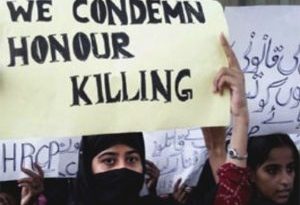Focus on Olympic Preparations: Azerbaijan
By Daniel Garay
Web Editor
At the conclusion of the Rio Olympic Games, the Azeri Olympic team returned as the most successful team in Azerbaijan’s history. According to Azernews, the team won 18 medals, a surprising performance for a small team of 56 athletes. They returned to Baku as “national heroes.”
To perform this well on the world stage, the performers had worked hard and trained well. But though the people cheer for them as they compete, there is no one looking as they prepare. For these “heroes,” there is a deep problem, one that affects not only Azerbaijan but the entire post-Soviet sphere: doping.
Azerbaijan is no stranger to doping and political interference in sport. Azerbaijan may have had their record-winning team, but they were missing reigning weight lifting champion Boyanka Kostova and Intigam Zairov. They received the two quota spots given to Azerbaijan for Olympic weight lifting competition, but on June 2016, they were stripped of their opportunities to compete by the International Weightlifting Federation (IWF), according to a press release from the federation. This mirrors the similar actions of their fellow former Soviet republics. They were among 13 athletes barred by the IWF, which involved countries such as Moldova, Uzbekistan, and North Korea.
This was the culmination of two years of investigations after weight lifting athletes failed drug tests as early as 2013. As reported by Reuters, the IWF at the beginning of April 2014 sanctioned Azeri weight lifters a total of $500,000 USD for repeat offences from 2013. According to the press release, “the IWF executive board unanimously decided to sanction the Azerbaijan Weightlifting Federation whose athletes produced multiple adverse analytical findings in 2013.” The IWF reported the presence of “dehydromethyltestosterone, a synthetic anabolic steroid with low androgenic effects and little pregestational activity”, as defined by Reuters.
The IWF began sanctioning athletes at the end of the investigation. But this did not stop all of the athletes or the sports officials of Azerbaijan for trying their luck with doping. In 2015 at the site of the IWF World Championship in Houston, Texas, 50 out of 220 samples taken tested positive for banned substances. Many of the athletes were from repeat-offending countries: Azerbaijan, Belarus, Greece, Kazakhstan, Moldova, North Korea, and Russia.
The decisions made to ban these individuals were made by June 2016, just two months before the Rio Olympic Games. Although the Azeri weight lifters appealed, they lost that fight at the Court of Arbitration of Sport (CAS). By July 2016, due to the World Anti-Doping Agency (WADA) investigation of Russia, the IOC had banned the Russian track-and-field team from competing in the Rio Olympics and had considered a blanket ban on the entire Russian Olympic team.
One of the countries to stand by Russia’s side was Azerbaijan. The Azerbaijani minister youth and sports, Azad Rahimov, as reported by Vestnik Kavkaza, a Caucasian news network, said: “We worry together with Russia, because we have a long-standing, close and very friendly relations, we always support each other. I believe that there is no place for collective responsibility in sport, but today have been deprived of everything due to a problem that is not related to them personally, is unacceptable.”
Like the other ex-Soviet countries listed as offenders in weight lifting, it appears to occur in other international sports as well. Russia received much media attention due to the country being investigated by WADA, which started in November. In a report by VOA News, Sergei Iljukov, a consultant with the Estonian Anti-Doping Agency, said, “Decades of using drugs as a ‘shortcut’ to international sports success mean that sports science in ex-Soviet countries has been neglected and coaches rely on outdated knowledge.”
However, the political influence adds a twist to the lack of sport science knowledge. For example, WADA does not specify rules regarding conflicts of interest in each country’s national anti-doping agencies. The head of the Azerbaijan Anti-Doping Agency just so happens to work for the Ministry of Sport as their anti-doping department head.
Azerbaijan at the same time is trying to boost its public image, trying to make itself a destination for business and tourism. In 2015, Baku became the first city in the Caucasian region to host the European Games. Ilgar Mamedov, a champion Russian fencer born in Baku told Vestnik Kavkaza his opinion of the 2015 European Games: “The European Games were great. Now Baku can easily make an application to host the Olympics. The Games were held at a very high level, beautiful gyms were built. And of course the hospitality of our people is something that has always been and will be.”
However, the combination of doping and political involvement creates a tough case for Azerbaijan in its bid to host the Olympic Games.

